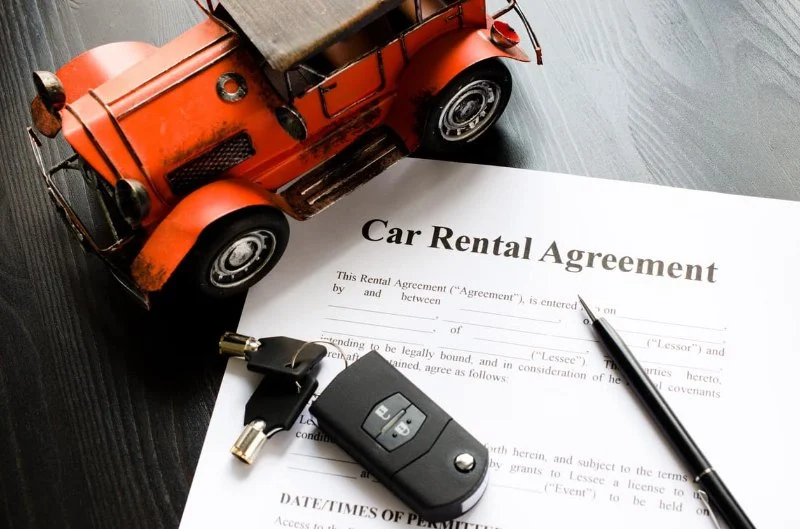
1. Introduction: Understanding Car Rental Insurance and Credit Cards
When renting a car, one of the most important factors to consider is insurance. Many rental car companies offer insurance coverage for your vehicle, but did you know that your credit card might also provide car rental insurance? This can save you money and give you peace of mind when you're on the road. In this article, we’ll explore whether credit cards cover car rental insurance and what that means for your next rental.
Credit card companies often offer travel-related benefits, including insurance coverage for car rentals. However, the specifics of coverage can vary greatly depending on the credit card issuer, type of card, and the terms and conditions of the policy. Let’s dive into the details of credit card car rental insurance, including what it covers, what it doesn’t, and how you can make the most of this benefit.
2. How Does Credit Card Car Rental Insurance Work?
Credit card car rental insurance is a benefit that comes with certain credit cards, especially travel-focused cards like Visa Signature, MasterCard World, and American Express cards. When you use your credit card to pay for the rental, the card’s insurance coverage may act as primary or secondary insurance, depending on the card and rental location. It’s important to note that this coverage is not universal and can vary from one card to another.
To activate credit card car rental insurance, you generally need to meet the following conditions:
2.1. Pay for the Rental with the Credit Card
In most cases, you must use the same credit card to pay for the car rental to qualify for coverage. If you use a debit card or another form of payment, the insurance benefit may not apply.
2.2. Decline the Rental Company's Insurance
While renting a car, you’ll typically be offered the option to purchase the rental company’s own insurance coverage. To use your credit card’s coverage, you may need to decline the rental company’s insurance offer. Be sure to check the details of your credit card’s insurance policy to understand what is required to activate the benefit.
2.3. Rental Period and Vehicle Types
Credit card car rental insurance typically applies to rentals of up to 30 days, but the coverage may be different for longer rental periods. Certain vehicles, such as luxury cars, exotic cars, or trucks, may not be covered under the policy. Always verify that the car you're renting falls within the allowed vehicle types under the terms of your credit card’s policy.
3. What Does Credit Card Car Rental Insurance Cover?
The coverage provided by credit card car rental insurance generally includes several aspects of protection, but the exact details can vary between credit card issuers. The most common coverage options include:
3.1. Collision Damage Waiver (CDW)
The most common form of credit card car rental insurance is a Collision Damage Waiver (CDW). This coverage protects you in case the rental car is damaged or involved in an accident. CDW typically covers damage to the car’s body, windows, and tires, but it may not cover other types of damage such as to the car’s interior or windshield. If your rental car is stolen, this coverage may also apply.
3.2. Theft Protection
Theft protection is another key aspect of credit card car rental insurance. If the rental car is stolen during the period of your rental, your credit card insurance may cover the cost of the vehicle. However, the theft protection might not cover items stolen from inside the car or other personal belongings.
3.3. Vandalism and Accidental Damage
Some credit cards also provide protection against vandalism and accidental damage. If the car is damaged due to vandalism, such as scratches or dents caused by others, or if you accidentally cause damage, your credit card may help cover the repair costs, reducing your financial liability.
3.4. Exclusions and Limitations
While credit card insurance offers many benefits, it’s important to understand the exclusions and limitations. For instance, credit card insurance may not cover damage to certain parts of the vehicle, like tires, wheels, or undercarriage. It may also exclude coverage for certain countries or specific types of cars. Always read the fine print to understand what is and isn’t covered by your card’s insurance policy.
4. What Does Credit Card Car Rental Insurance Not Cover?
While credit card car rental insurance can provide significant coverage, there are some key exclusions you should be aware of. Some common areas that are not covered by most credit cards include:
4.1. Personal Injury or Medical Costs
Credit card insurance typically does not cover personal injury or medical costs resulting from an accident while driving the rental car. For this, you may need to purchase separate personal accident insurance or rely on your health insurance.
4.2. Damage to Personal Property
If your personal belongings are damaged or stolen from the rental car, this type of loss is generally not covered by credit card car rental insurance. You may want to consider travel insurance or personal property insurance for additional protection.
4.3. International Rentals
Not all credit cards offer coverage for car rentals outside of the United States. If you're renting a car abroad, you may need to check whether your credit card provides coverage in other countries. Additionally, some countries may have specific exclusions due to local laws, so it’s important to verify before traveling.
5. Tips for Using Credit Card Car Rental Insurance
To make the most of your credit card’s car rental insurance, here are a few helpful tips:
5.1. Check Your Credit Card’s Terms
Before renting a car, review the terms of your credit card’s car rental insurance coverage. Not all credit cards offer the same benefits, and the coverage limits, exclusions, and requirements can vary. Some cards may offer primary insurance (which is the first to pay out), while others may offer secondary insurance (which only kicks in after your personal insurance). Knowing the details of your coverage will help you make informed decisions.
5.2. Take Pictures of the Car
When picking up the rental car, take detailed photos of the vehicle, including any existing damage. This documentation can help you avoid being charged for damages that weren’t your fault when you return the car.
5.3. Decline the Rental Company’s Insurance
To activate your credit card’s insurance coverage, make sure to decline the rental company’s offered insurance. If you purchase the company’s insurance, it could void your credit card’s coverage, so it’s important to be aware of this when picking up the car.
6. Conclusion: Is Credit Card Car Rental Insurance Worth It?
Credit card car rental insurance can be an excellent way to save money on your next rental, offering you peace of mind and protection without having to pay for additional coverage at the rental counter. However, it’s essential to understand the details of your card’s policy, including what is and isn’t covered. By carefully reviewing your credit card’s terms, taking necessary precautions, and understanding your coverage limits, you can make the most of this benefit.
If you're planning your next trip, be sure to check out Carvel Car Rental for the best rental car deals and recommendations. We offer a wide range of cars to suit your needs and can help you navigate the car rental process with ease.







 ALM Drive2.0 (3 reviews)
ALM Drive2.0 (3 reviews) National Car Rental4.0 (3593 reviews)
National Car Rental4.0 (3593 reviews) Anabell Tours4.0 (15 reviews)
Anabell Tours4.0 (15 reviews) Thrifty Car Rental - Dallas - Love Field Airport2.0 (375 reviews)
Thrifty Car Rental - Dallas - Love Field Airport2.0 (375 reviews) Luxo Exotics4.0 (30 reviews)
Luxo Exotics4.0 (30 reviews) JC CAR RENTAL2.0 (345 reviews)
JC CAR RENTAL2.0 (345 reviews) How Much is the Under 25 Car Rental Fee in the U.S. | Tips for Young Drivers
How Much is the Under 25 Car Rental Fee in the U.S. | Tips for Young Drivers Does Enterprise Do a Credit Check for Car Rental?
Does Enterprise Do a Credit Check for Car Rental? Does AAA Have Car Rental Discounts? Find Out How You Can Save on Rentals
Does AAA Have Car Rental Discounts? Find Out How You Can Save on Rentals Which Car Rental Is Best? Compare Top Options and Save | Carvel Car Rental
Which Car Rental Is Best? Compare Top Options and Save | Carvel Car Rental Is Fox Car Rental Good? A Complete Guide to Its Service and Pricing
Is Fox Car Rental Good? A Complete Guide to Its Service and Pricing Can I Use Delta SkyMiles for Car Rental? | Best Options and Tips
Can I Use Delta SkyMiles for Car Rental? | Best Options and Tips